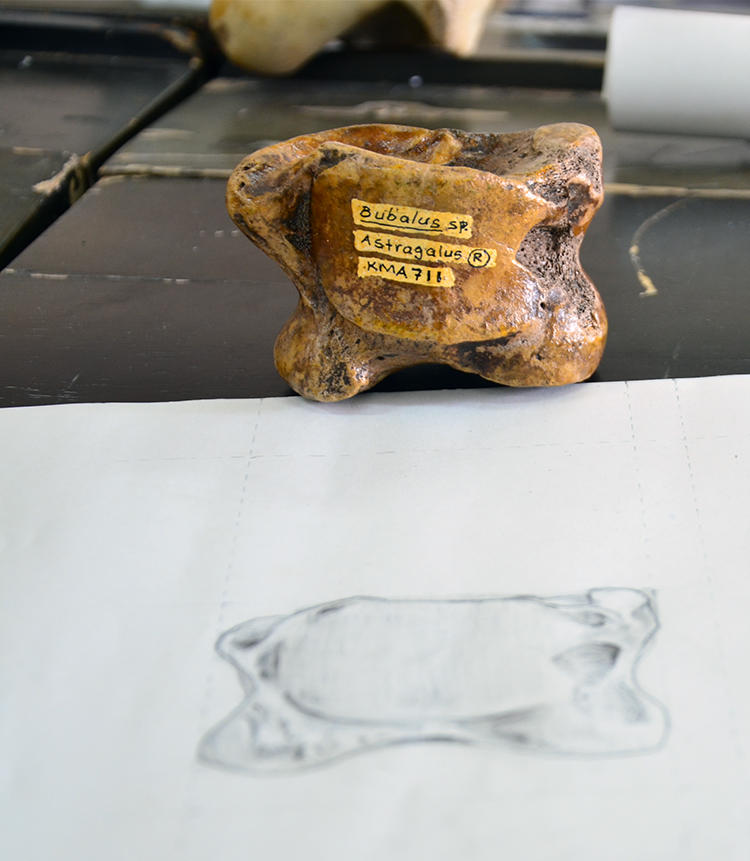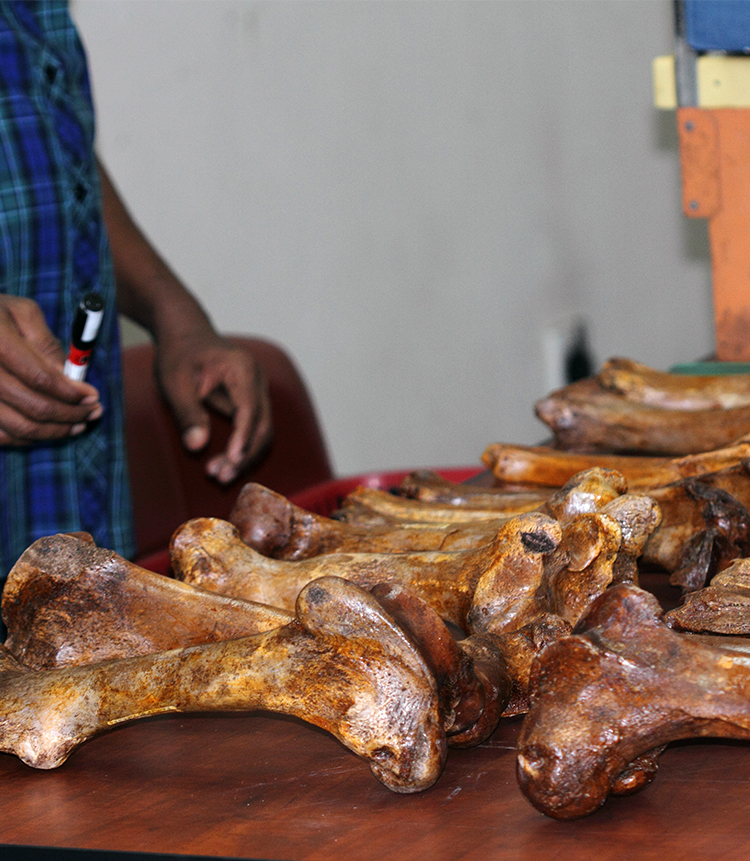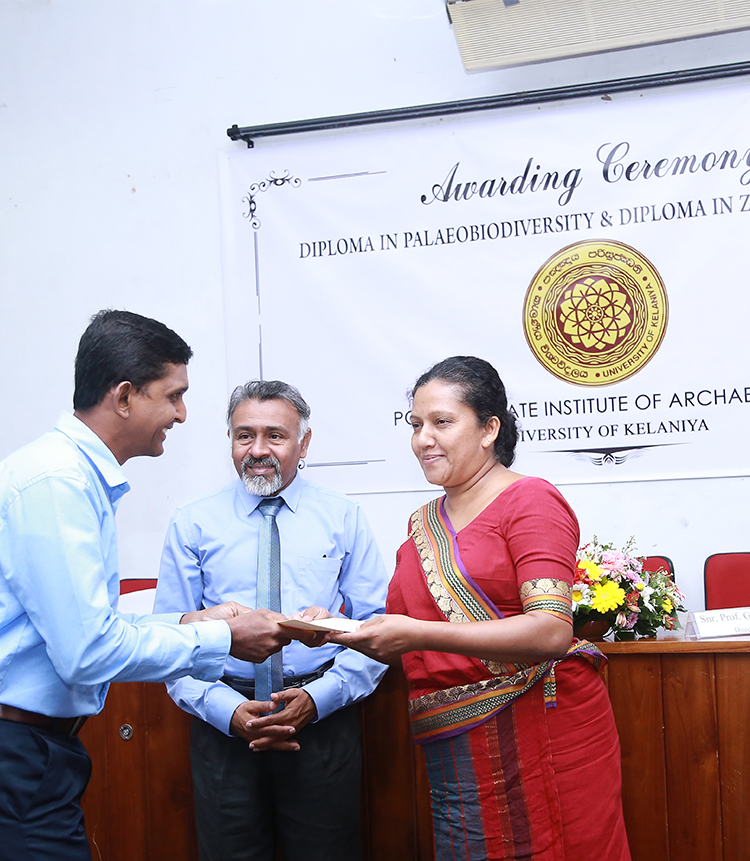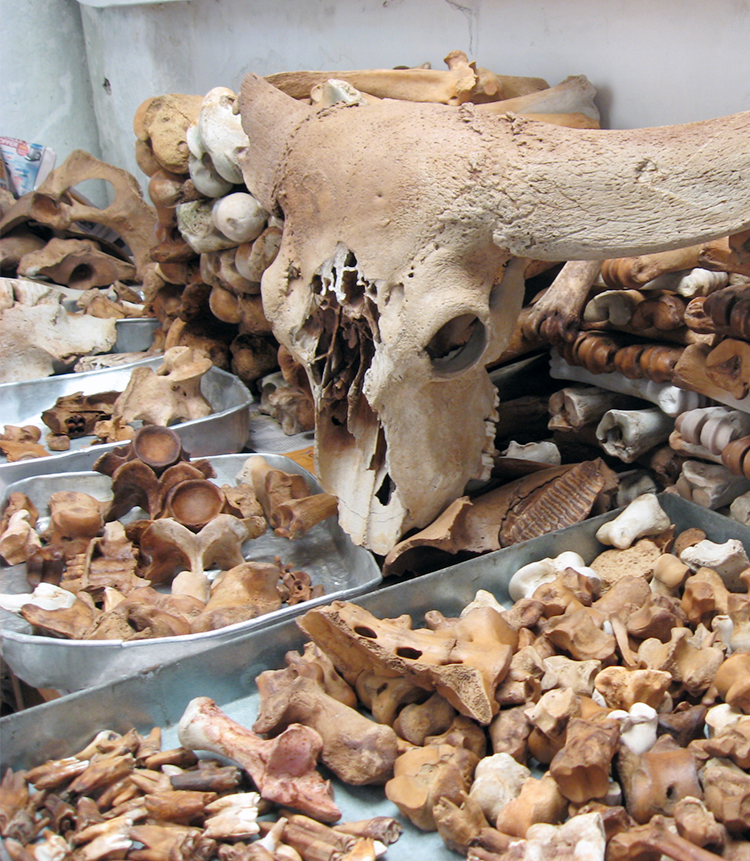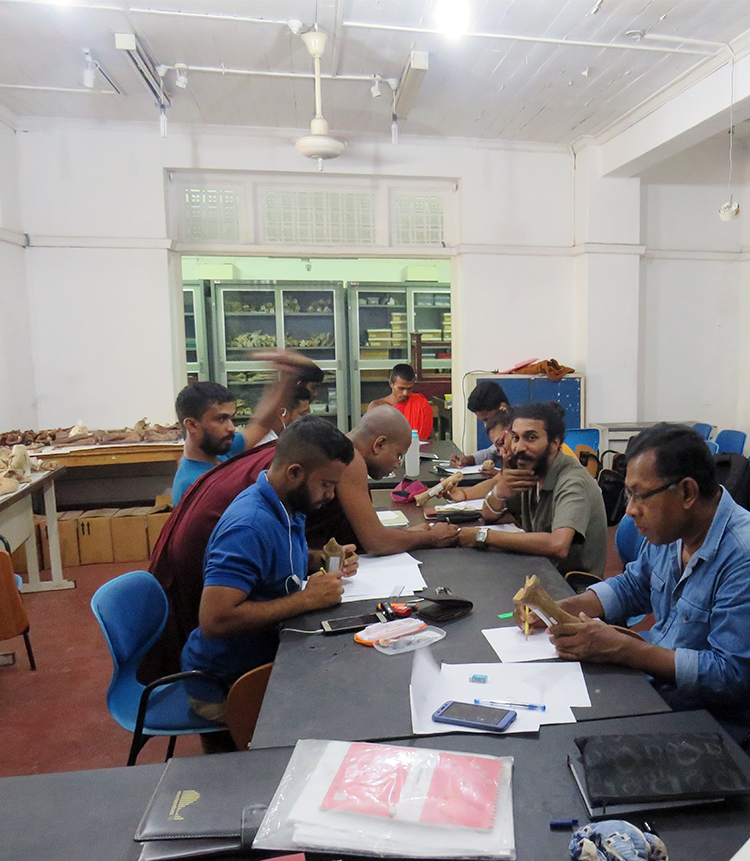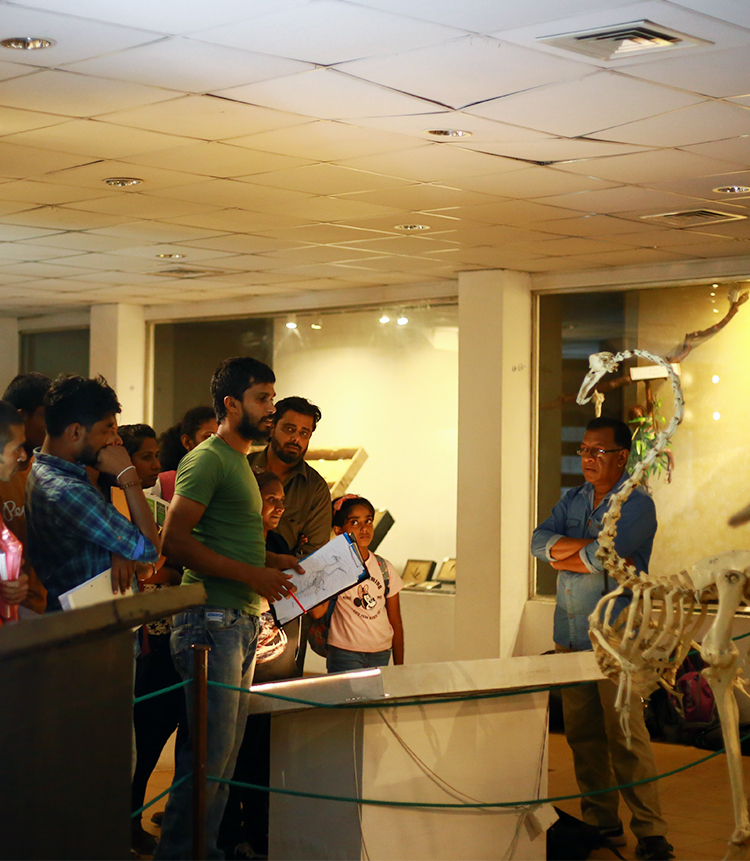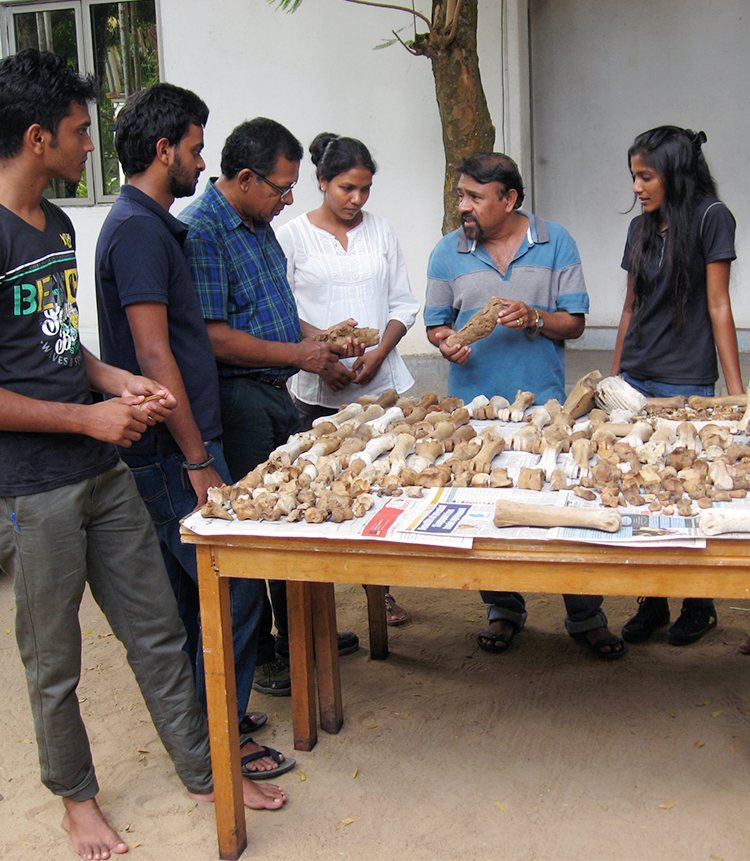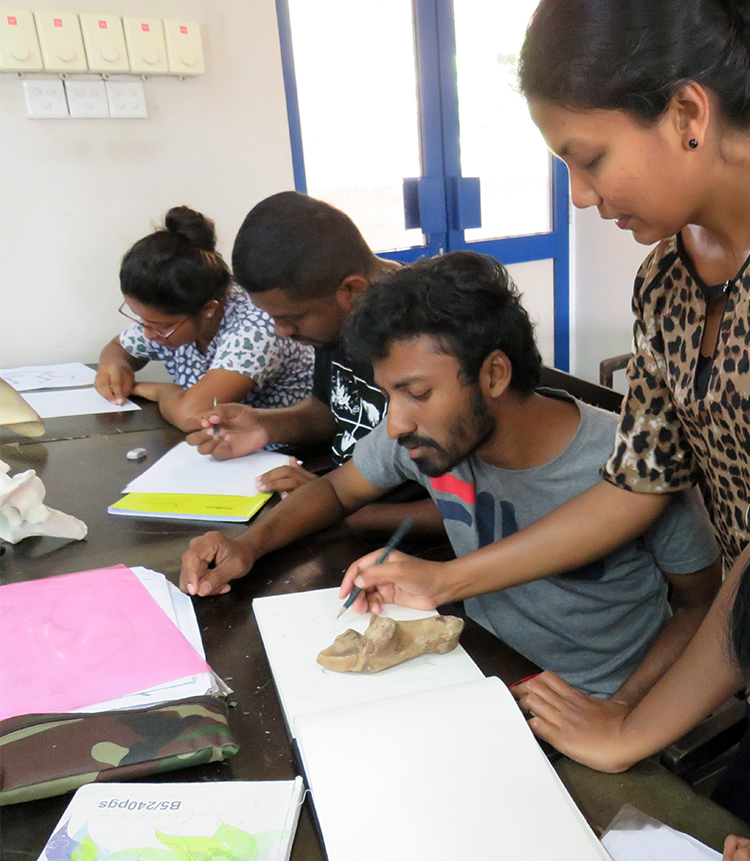Diploma in Zooarchaeology
Zooarchaeology refers to the study of animal remains from archaeological sites. The goal of zooarchaeology is to gain a better understanding of the relationship between humans and their environment, especially between humans and other animal populations. Zooarchaeologists have relied heavily on combinations of the natural and social sciences, history, and the humanities for concepts, methods, and explanations. Basic biological principles and topics are fundamental to zooarchaeology.
-
Duration: 12 Months
-
Medium: English and Sinhala
-
Number of Credits: 30 credits
-
Lecturing: On Classroom & Distance Learning (Zoom)
Minimum admission requirement: Minimum admission requirement is the General Certificate of Education (Advanced level) or an equivalent qualification. A foundation course followed by passing an aptitude test or completion of NVQF level 4 or accredited work experience or accredited prior learning may also be considered as equivalent qualification for admission to SLQF level 3 in a particular field of specialization.
Zooarchaeology and Basic Biology
Course Code: DPZA 0301
Learning Outcomes: Demonstrate communication skills in Zooarchaeology and Basic Biology
Course Content:
- An introduction to zooarchaeology
- Basic biology for zooarchaeology
- Identification of animals
Method of Teaching and Learning: Lectures/ Tutorials/ Discussion Classes/ Presentation/ Field Lessons and Laboratory Studies.
Assessments: End of course written examination of MCQ and/ or structural Essays and/ or Assignments and/or Presentation and/ or Activity.
Zooarchaeology and related fields.
Course Code: DPZA 0302
Learning Outcomes: Demonstrate communication skills of Zooarchaeology and related fields.
Course Content:
- Biogeographical zones in the world
- Biogeography in Sri Lanka
- Ecology
- Palaeobiodiversity
- Palaeontology
- Animal pathology and osteological characters
- Pleistocene period in Sri Lanka
Method of Teaching and Learning: Lectures/ Tutorials/ Discussion Classes/ Presentation/ Field Lessons and Laboratory Studies.
Assessments: End of course written examination of MCQ and/ or structural Essays and/ or Assignments and/or Presentation and/ or Activity.
Zooarchaeology in Archaeology
Course Code: DPZA 0303
Learning Outcomes: Demonstrate communication skills of Zooarchaeology in Archaeology
Course Content:
- History of prehistoric studies in Sri Lanka
- Biostratigraphy, geostratigraphy and chronology
- Settlement archaeology
- Identification of faunal material found from cultural contexts
- Malacology for archaeology
- A case study: Pothana prehistoric cave excavations and zooarchaeological material
- Shell maddens and prehistoric evidence in Sri Lanka
- Disciplines of physical anthropology and zooarchaeology (study of morphological characters, measurements etc. of human and animal skeletal material)
- Disposal of faunal remains
- Interpret of zooarchaeological data
- Animal domestication
Method of Teaching and Learning: Lectures/ Tutorials/ Discussion Classes/ Presentation/ Field Lessons and Laboratory Studies.
Assessments: End of course written examination of MCQ and/ or structural Essays and/ or Assignments and/or Presentation and/ or Activity.
Osteology for Zooarchaeology
Course Code: DPZA 0304
Learning Outcomes: Demonstrate communication skills of Osteology for Zooarchaeology
Course Content:
- Study of recent skeletal remains
- Human and animal teeth
Method of Teaching and Learning: Lectures/ Tutorials/ Discussion Classes/ Presentation/ Field Lessons and Laboratory Studies.
Assessments: End of course written examination of MCQ and/ or structural Essays and/ or Assignments and/or Presentation and/ or Activity.
Laboratory Studies
Course Code: DPZA 0305
Learning Outcomes: Demonstrate communication skills of Laboratory Studies
Course Content:
- Age at death
- Conservation, treatments and storage of animal remains found from archaeological excavations
- Counting and recording
- Gathering data
- Reference collection, management of archaeological collections, publications, and curation
- Osteological illustration
Method of Teaching and Learning: Lectures/ Tutorials/ Discussion Classes/ Presentation/ Field Lessons and Laboratory Studies.
Assessments: End of course written examination of MCQ and/ or structural Essays and/ or Assignments and/or practical test and/or Presentation and/ or Activity.
Field Studies
Learning Outcomes: Obtain training for students to apply the theoretical knowledge gained, in practical context.
Course Content: Field visits and training, workshops.
Methods of Teaching and Learning: Lectures/ Tutorials/Discussion Classes/ Presentations/ Field Lessons/ Practical Studies/ Sites visits/Assist the students for independent investigation on interest subject areas.
Assessments: End of the course submits the report to the Course Coordinator.
The applications can be obtained from the Administration office of the PGIAR
Duly completed applications should be sent to:
The Assistant Registrar (Academic),
Post Graduate Institute of Archaeology
407, Bauddhaloka Mawatha,
Colombo 07.
Please indicate “DIPLOMA IN ZOOARCHAEOLOGY” on the top left-hand corner of the envelope.
Online application
|
Registration fee |
Rs. 1500 |
|
Total Course Fee |
Rs. 50,000 |

